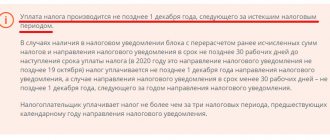Some types of crimes against property in the criminal legislation of Russia have a mandatory feature - the amount of damage caused, if exceeded, criminal liability occurs. Thus, the law distinguishes minor administrative offenses, which result in minor harm, from criminal acts for which criminal punishment may be imposed, including imprisonment. At what amount criminal liability begins depends on the crime and the circumstances of its commission. Does the law provide specific meanings that affect the qualification of the offense? Are there exceptions to these rules? About all this in our article.
Theft: how much is criminal liability?
Theft is the secret theft of someone else's property, which means theft without witnesses: no one sees how the thief takes someone else's property or money.
Question: What is the amount of criminal liability for theft?
Article 158 of the Criminal Code of the Russian Federation provides for 4 parts, in each of which a specific amount of damage is a mandatory feature for the liability of the perpetrator.
Part 1
Here, the legislator provided for liability in the form of a fine, compulsory labor, and imprisonment for up to 2 years for theft in excess of 2,500 rubles .
The subject of theft can be money directly in the form of bills or coins, as well as things or any other property valued at the specified amount. It is important that the value of the stolen item is determined reliably. After all, an item that we buy for 30,000 rubles, three years later at the time of theft, can no longer cost the same (unless, of course, it is gold, which is growing in price). To determine the value of the stolen property, an appraisal examination is appointed.
Example No. 1 . A group of friends celebrated Ivanov I.E.’s birthday, who was given an expensive phone. Ivanov replaced the SIM card from an old push-button phone, which he had once bought for 7,000 rubles, and began using the new one. When the guests left, Ivanov began looking for the old phone, since it was necessary to transfer all contacts to the new one, but he did not find it. He wrote a statement to the police, indicating the price of the missing phone at 7,000 rubles. The investigation established that the phone was stolen by one of the guests; according to an appraisal examination, its value was determined to be 2,700 rubles. A criminal case was initiated against the thief under Part 1 of Art. 158 of the Criminal Code of the Russian Federation.
As can be seen from the example, a phone purchased for 7,000 rubles was valued several years later at 2,700 rubles, which is enough to initiate a case. In practice, there are cases when victims do not agree with the assessment. Then the court establishes the true value of the stolen property - if necessary, a repeat examination is ordered, witnesses are questioned, etc.
Most often, an appraisal examination is carried out on a seized item, but what if the stolen property is not found? Then experts make a conclusion about the valuation of the stolen item based on a comparative analysis of similar goods and their prices on the service market on the day the theft occurred.
It is important to understand that a sufficient amount to initiate a case under Part 1 of Art. 158 of the Criminal Code of the Russian Federation, must exceed, and not be equal to, 2500 rubles . That is, criminal liability begins with the secret theft of 2,501 rubles. Theoretically, it could be 2500 rubles. 05 kopecks, but such situations have not been encountered in judicial practice.
Question: Does criminal liability arise if the amount stolen is less than 2,500 rubles?
No , in this case the thief will face administrative liability under Art. 7.27 of the Code of Administrative Offenses of the Russian Federation in the form of a fine, compulsory labor or administrative arrest. If the value of the stolen property is 2500 rubles. (no more and no less), this is also a basis for liability under the specified norm of the Code of Administrative Offenses of the Russian Federation.
Question: It turns out that criminal proceedings cannot be initiated against thieves who steal for an amount less than 2,500 rubles?
According to the first part of Art. 158 of the Criminal Code of the Russian Federation - indeed, this is impossible, but in 2016 Article 158.1 of the Criminal Code of the Russian Federation was introduced into the Criminal Code of the Russian Federation, which provides for criminal liability for those who have been repeatedly prosecuted for petty theft in the amount of 1,000 rubles to 2,500 rubles.
In addition, in the case of a theft with additional signs (for example, with the sign “from the premises”, “from a bag in the presence of the victim”, “with penetration into the home”), the amount of damage for criminal prosecution does not matter: it can be less than 2500 rubles, but not less than 1000 rubles. That is, if there are additional qualifying characteristics and the act is defined under parts 2,3,4 of Art. 158 of the Criminal Code of the Russian Federation, then the amount of damage may be less than 2,500 rubles, but more than 1,000 rubles.
Example No. 2 . At a bus stop, a thief stole a woman’s wallet from a bag lying on a bench; it contained 1,300 rubles. He was charged under Art. 7.27 of the Code of Administrative Offenses of the Russian Federation, since in the absence of additional signs the damage is less than 2,500 rubles.
Example No. 3 . The same thief stole a wallet from a bag on the woman’s shoulder; the damage amounted to the same 1,300 rubles. The actions of the pickpocket were qualified under paragraph “g” of Part 2 of Art. 158 of the Criminal Code of the Russian Federation as theft from a bag that is with the victim, and despite the amount being less than 2,500 rubles, taking into account the additional criterion, this is not administrative, but criminal liability.
Part 2
In part two of Art. 158 of the Criminal Code of the Russian Federation provides for liability for theft committed with causing significant damage to a citizen. According to the law, this qualifying feature cannot be incriminated if the amount stolen is less than 5,000 rubles . According to the clarifications of the Supreme Court of the Russian Federation, courts need to find out what the total family income is in order to confirm the sign “causing significant damage to a citizen.” In practice, there are cases in which the same amount of theft can be a significant loss for one victim, but not for another.
Example No. 4 . Konovalov A.S. a purse containing 6,000 rubles was stolen from the car. Konovalov stated that the damage in the amount of 6,800 rubles (money + the cost of the purse) is significant for him, since his monthly income is 20,000 rubles and he has loan obligations. The court found the thief guilty under paragraph “c” of Part 2 of Art. 158 of the Criminal Code of the Russian Federation, that is, for theft causing significant damage.
Example No. 5 . A construction worker carried out building materials worth 6,800 rubles from a country house. Taking into account the high income of the family living in the house, which amounted to several million rubles per month, this amount was not considered significant damage, although it formally exceeded the lower threshold of 5,000 rubles. The culprit was convicted under Part 1 of Art. 158 of the Criminal Code of the Russian Federation, without qualifying features.
Thus, determining the significance of the damage caused is a sign that completely depends on the subjective perception of the circumstances by the victim, but a minimum amount of 5,000 rubles is taken into account. The damage must be equal to or exceed this value, only then can it be considered significant for the citizen. If property is stolen from an organization, significance is not determined, since this attribute applies only to the injured individual. Punishment under Part 2 of Art. 158 of the Criminal Code of the Russian Federation can reach 5 years of imprisonment.
Part 3
Part 3 Art. 158 of the Criminal Code of the Russian Federation provides for liability for theft in an amount exceeding 2,500,000 rubles to one million rubles. Damage equal to an amount within the mentioned framework is called major and does not depend on the opinion of the victim on this matter. For qualification under the third part, it does not matter whether it is significant.
Example No. 6 . Kirillov R.P. I often used the bank card of my uncle, who was seriously ill, but always with his permission. Once Kirillov needed money because of gambling debts, he withdrew half a million rubles from his uncle’s card. A criminal case was opened, Kirillov’s actions were qualified under paragraph “c, d” of Part 3 of Art. 158 of the Criminal Code of the Russian Federation as committing theft from a bank account (point “d”), on a large scale (point “c”). At the trial, the uncle made a statement that he forgives his nephew and considers the damage caused to be not significant for himself. The victim’s opinion was taken into account when sentencing, but the qualifying feature “large amount” remained, since the amount exceeded 250,000 rubles.
The example shows that Kirillov’s actions were qualified under two points of the second part of Article 158 of the Criminal Code of the Russian Federation. According to the rules of criminal law, there can be several points at the same time if they correspond to the circumstances of the crime committed. For example, theft can be committed from a premises, by a group of people, causing major damage, etc. All these signs can be charged to the accused at the same time. The crime under Part 3 of Art. 158 of the Criminal Code of the Russian Federation, belongs to the category of serious ones, the punishment for it can reach six years in prison.
Part 4
Under Part 4 of Article 158 of the Criminal Code of the Russian Federation, criminal liability arises for theft, starting from an amount of damage exceeding one million rubles and ad infinitum. This is an even more dangerous crime, which can be punishable by up to 10 years in prison.
Fixed values for large and especially large damage (250,000 and 1,000,000 rubles) are used in the criminal code for all types of theft, with the exception of a few.
How is the amount of damage determined when prices fluctuate?
In various by-laws, as well as the Letter of the Plenum of the Supreme Court, analyzing the judicial practice of office work on robberies, robberies and thefts, one can find the following rules establishing the procedure for determining the amount of damage.
- The amount of damage is determined by the value on the date of theft.
- If cost information is not available, the investigation turns to experts and makes an estimate based on their findings.
- The amount of damage caused by theft is determined based on the calculation of the value of the stolen funds at the time of the court decision. It is possible to carry out indexation to the date of execution of the court decision, if such a need arises.
- For historical, artistic and scientific values there is a separate procedure for calculating the cost. It is determined on the basis of the findings of the examination, which indicates their significance and cost.
If disagreements arise, an independent third-party examination is invited.
Fraud and embezzlement
The rules for determining significant, large and especially large damage, which apply to theft, also apply to the crimes provided for in Art. 159 of the Criminal Code of the Russian Federation (fraud) and Art. 160 of the Criminal Code of the Russian Federation (appropriation and embezzlement of someone else’s property).
Fraud is the theft of someone else's property, committed by deceiving the victim or by abusing his trust. An example of fraud would be a situation where the victim is given knowingly false information in order for the criminal to voluntarily give away valuables:
Example No. 7 . Sokolov A.K., knowing that his car was stolen and was being pawned and wanted, convinced an acquaintance with whom he had friendly relations that the car was “clean” and there would be no problems with law enforcement agencies and the traffic police. An acquaintance, believing Sokolov, gave him 300,000 rubles towards the purchase of a car, after which the truth became clear: the car was stolen, it was seized and returned to the real owner.
The example shows that the victim voluntarily, being mistaken regarding the information provided, gave a sum of money to the fraudster.
As in the case of theft, under Part 1 of Art. 159 of the Criminal Code of the Russian Federation entails liability for theft of more than 2,500 rubles , punishment can be in the form of imprisonment for up to two years. In case of theft in the amount of up to 2,500 rubles, the attacker faces administrative liability under Part 2 of Art. 7.27 Code of Administrative Offenses of the Russian Federation.
According to Part 2 of Art. 159 of the Criminal Code of the Russian Federation, criminal liability begins with a minimum amount of 5,000 rubles - as with secret theft, the significance of the damage for a citizen begins with this value. Further, the legislator provides for separate qualifying criteria depending on the amount of harm:
Part 3 Art. 159 of the Criminal Code of the Russian Federation - fraud resulting in large damage, that is, over 2,500,000 rubles (as in the case of theft) - punishment can be up to 6 years in prison.
Example No. 8 . Petrov P.R. distributed advertisements that he was a landscape design specialist, displayed a certificate of completion of the relevant courses, which he downloaded on the Internet and, using Photoshop, inserted his name into the document. Several owners of country houses approached him, who each left him 260,000 rubles as an advance payment. 5 criminal cases were initiated against Petrov under Part 3 of Art. 159 of the Criminal Code of the Russian Federation, with the qualifying sign of major damage.
Part 4 Art. 159 of the Criminal Code of the Russian Federation - fraud resulting in a particularly large amount of damage - as in the crime of “theft”, its amount must exceed one million rubles (punishment can be up to 10 years in prison).
Example No. 9 . Krupynin A.K. opened an agency to provide services for transporting cars from abroad. Krupynin assured clients that he takes on all the hassle of registration and customs clearance of the car. He said that the drivers are top-class specialists specially trained by him. But Krupynin had no employees on his staff; he knew nothing about transporting cars from Germany, although he took an advance payment of no less than 1,500,000 rubles. One of the clients transferred this amount to him to fulfill the concluded contract, but did not receive either the car or the refund. A criminal case was initiated against Krupynin under Part 4 of Art. 159 of the Criminal Code of the Russian Federation - fraud committed with causing damage on an especially large scale, since the amount is more than one million rubles.
The listed situations within the crime of “fraud,” as we have already mentioned, are similar to theft in terms of qualifications regarding the cost of damage. Values equal to 5000 rubles, 250000 rubles, 1000000 rubles. are also typical for some other forms of fraud:
- Art. 159.2 of the Criminal Code of the Russian Federation – fraud in the field of payments. These are crimes as a result of which funds from maternity capital, subsidies, etc. are stolen.
- Art. 159.3 of the Criminal Code of the Russian Federation – fraud using electronic means of payment. Basically, these are crimes that result in the theft of funds from other people's bank cards.
- Art. 159.6 of the Criminal Code of the Russian Federation – fraud in the field of computer information. Most often, these are the actions of employees of communication offices who, by making changes to the subscriber database, transfer funds from their accounts.
The same values apply in the case of theft in the form of misappropriation or embezzlement of entrusted funds under Art. 160 of the Criminal Code of the Russian Federation.
However, there are other forms of fraud, where the amount of theft for initiating a criminal case will be different (special):
- fraud, expressed in deliberate failure to fulfill contractual obligations, causing significant damage (Part 5 of Article 159 of the Criminal Code of the Russian Federation). This refers to agreements concluded between entrepreneurs or heads of legal entities. An amount in excess of 10,000 rubles may be considered significant damage in such crimes (that is, the rule of 5,000 rubles does not apply). Example No. 10 . IP Zheleznov A.R. entered into an agreement for the provision of services for the installation of blinds with Revstroy LLC, represented by director P.V. Anisimov. Funds of 20,000 rubles were transferred to Zheleznov, but the work was never completed. On behalf of Revstroy LLC, a statement was written to the police, and a criminal case was initiated against Zheleznov under Part 5 of Art. 159 of the Criminal Code of the Russian Federation, the punishment for which can be up to 5 years. Please note that it is precisely under this provision of the criminal law that significant damage to a legal entity can be caused.
- fraud in the form of deliberate failure to fulfill contractual obligations causing major damage (Part 6 of Article 159 of the Criminal Code of the Russian Federation) - and here the legislator separately sets the value of the amount, which should be more than three million rubles. That is, if IP Zheleznov A.R. entered into an agreement with Revstroy LLC and took an advance payment of more than three million rubles, he will be liable under Part 6 of Art. 159 of the Criminal Code (punishment up to 6 years in prison).
- the same acts if particularly large damage is caused, which for fraud in the field of business activity amounts to more than 12 million rubles (Part 7 of Article 159 of the Criminal Code of the Russian Federation - punishment of up to 10 years in prison).
In 2012, Article 159.1 of the Criminal Code of the Russian Federation was introduced into the Criminal Code of the Russian Federation - fraud in the field of lending. The essence of the crime is to provide knowingly false information (for example, about income level) when applying for a loan, and subsequently to intentionally fail to fulfill the issued loan obligation. It turns out that as a result of such actions, the injured party is the bank, and the guilty party is the one with whom the loan agreement was signed. For this crime, the amount of damage sufficient to initiate a criminal case under Part 1 of Art. 159.1 of the Criminal Code of the Russian Federation, must exceed 2,500 rubles (as in “simple” theft).
But to determine large and especially large amounts of damage, special values have been established:
- according to Part 3 of Art. 159.1 of the Criminal Code of the Russian Federation - fraud in the field of lending causing major damage can occur if the amount exceeds 1,500,000 rubles (punishment up to 6 years in prison);
- according to Part 4 of Art. 159.1 of the Criminal Code of the Russian Federation - the same act, committed by causing particularly large-scale damage, can only occur if the amount of damage exceeds 6,000,000 rubles (punishment of up to 10 years in prison).
Similar amounts of damage, sufficient to initiate a criminal case, are used for insurance fraud under Art. 159.5 of the Criminal Code of the Russian Federation.
What happens if the damage is compensated before a criminal case is initiated against the accused?
The amount of damage required to initiate criminal proceedings against a violator has not changed in 2022. But the position of those who compensate for damage before initiating a criminal case against the offender has also changed. In order to understand the features, it is worth referring to Article 76.1 of the Criminal Code of the Russian Federation as amended on July 3, 2016.
Read the law
This article has a complex name - “Exemption from criminal liability in cases of crimes in the sphere of economic activity”, provides for the possibility of exemption from “tax” crimes (payment evasion and others) if the culprit compensates for the damage caused to the budgetary system of the Russian Federation. In part 2 art. 76.1 contains grounds for exemption from criminal liability if the damage is compensated before the initiation of a criminal case.
Types of theft, regardless of the amount of damage
There are crimes that qualify as theft, and the amount of damage caused to the victim is not important for initiating a criminal case . Thus, for crimes such as robbery and robbery, the actual damage can be expressed in several rubles, and the perpetrator still bears criminal liability for the act. At the same time, in additional qualifying criteria for these acts, the size of the stolen property is taken into account.
In accordance with Art. 161 of the Criminal Code of the Russian Federation, robbery is the open theft of someone else's property. Unlike theft, an attacker steals something valuable in front of eyewitnesses or the victim himself. A classic example of robbery is the sudden snatching of a bag from a woman’s hands in a crowded place: such actions are qualified under Part 1 of Art. 161 of the Criminal Code of the Russian Federation, punishment can be up to 4 years in prison.
Robbery has an increased social danger compared to theft or fraud, since it is committed openly and boldly, contrary to the norms of morality and morality, in full view of society. Moreover, robbery can be committed with the use of violence that is not dangerous to life or health (a push, one or two blows with a hand or foot without the use of weapons or objects) or with the threat of such violence, which is absolutely excluded in case of secret theft. Taking into account all these characteristics, the legislator provided for the liability of the perpetrator of robbery without reference to any amount.
Example No. 11 . Previously repeatedly convicted Petrov A.K. in the dark I saw a student passing by wearing headphones. Petrov decided that the young man had an expensive phone and stopped him, demanded the gadget, threatening to beat him. Frightened, the student gave away the phone, the cost of which was only 900 rubles. Petrov was subsequently detained and his phone was confiscated. His actions were qualified under paragraph “g” of Part 2 of Art. 161 of the Criminal Code of the Russian Federation as robbery committed with the threat of violence not dangerous to life and health, the court sentenced him to 3 years in prison.
The example shows: despite the low value of the stolen property, Petrov A.K. suffered criminal punishment to the fullest extent of the law. The crime provided for in Part 2 of Art. 161 of the Criminal Code of the Russian Federation is serious, and the maximum punishment for it can be in the form of isolation for 7 years.
The legislator separately distinguishes robbery with damage on a large and especially large scale. Thus, in case of open theft of property worth more than 250,000 rubles (clause “e” of Part 2 of Article 161 of the Criminal Code of the Russian Federation), the perpetrator will face a sentence of up to 7 years in prison, even if the robbery was committed without violence or the threat of violence. In case of open theft in the amount of more than 1,000,000 rubles, liability arises under paragraph “b” of Part 3 of Art. 161 of the Criminal Code of the Russian Federation, where punishment varies from 6 to 12 years in prison.
In practice, there are often situations where the theft began as secret and ended as open. Then the person’s actions are qualified as robbery.
Example No. 12 . Akulin A.A. repeatedly took food out of the supermarket without paying for it. Unnoticed by hiding small bottles of alcohol and snacks under his jacket, Akulin committed thefts for several months. But the last time Akulin was noticed was by a security guard who shouted at him. Without turning around, Akulin began to run out of the store with everything stolen, and the security guard began to chase him, shouting “Stop!” At the trial, it was proven that the theft at a certain moment became obvious to the sellers, cashiers and security guards, and Akulin could not help but understand this, since it was clear that he heard shouts, but continued to hold the stolen products and run away. He was found guilty of robbery, although the crime initially began as theft.
It is noteworthy that in such situations, judicial practice on the application of the provisions of Part 2 of Art. 14 of the Criminal Code of the Russian Federation. This provision speaks about the possibility of releasing the perpetrator from criminal liability if the harm caused by him is so small that it does not create a public danger. For example, if in a similar situation a product was taken out of a supermarket for a tiny amount - a few rubles.
Example No. 13 . Platonov K.L. I went into a hypermarket and, in front of everyone, took a package of cotton swabs from the shelf, the price of which was 12 rubles. The cashier tried to stop him, but Platonov walked past the cash register and did not pay for the goods. The police officers who were called discovered the robbery, and a criminal case was opened - as we remember, the damage in open theft does not matter. Platonov admitted his guilt, compensated for the damage, wrote a confession, and explained his behavior by the need for an urgent purchase and lack of funds. His actions were considered insignificant, in accordance with Part 2 of Art. 14 of the Criminal Code of the Russian Federation, Platonov was released from criminal liability.
Let us remind you once again that exemption from liability under Part 2 of Art. 14 of the Criminal Code of the Russian Federation is possible only in rare cases when other rights of the victim are not violated and when there is practically no public danger. For example, robbery committed with the use of violence cannot be considered insignificant.
To qualify the offense under Art. 162 of the Criminal Code of the Russian Federation (robbery), the price of the stolen property does not matter. It is impossible to recognize such a crime as minor.
Robbery is a sudden attack on the victim with the obligatory sign of “use of violence dangerous to life and health, or with the threat of use of such violence.” This is a very dangerous crime, provided for in Art. 162 of the Criminal Code of the Russian Federation, criminal liability for such crimes occurs regardless of the amount of theft. In practice, there are cases when the attacker, believing that the victim had money, beat him, but it turned out that there was no money. And in this case, the guilty person will be held accountable for robbery, without the amendment “attempt,” since this type of crime is over from the moment of the attack.
Example No. 14 . Having learned that the neighbor sold her car, R.P. Matrosov. decided to steal money from her in the amount of 100,000 rubles. Taking a bat in his hands, wearing a black mask so as not to be recognized, he attacked a woman in the entrance of the house, after which he forced her to go into his apartment, began to demand money and threaten to kill her. As it turned out, the victim had already deposited the proceeds from the sale of 100,000 rubles into the bank, and the criminal was forced to be content with a 500 ruble bill that ended up in her neighbor’s wallet. Despite the fact that the damage for this amount cannot be called significant, Matrosov was sentenced to a long prison term for committing robbery.
Crimes under Art. 162 of the Criminal Code of the Russian Federation are never considered insignificant, since they are associated with an encroachment not only on property, but also on the life and health of the owner of this property. For a crime not aggravated by qualified characteristics, a penalty of imprisonment of up to 8 years is provided.
According to Part 2 of Art. 162 of the Criminal Code of the Russian Federation for robbery committed on a large scale (over 250,000 rubles), the perpetrator faces imprisonment from 7 to 12 years. According to Part 3 of Art. 162 of the Criminal Code of the Russian Federation provides for liability for robbery committed on an especially large scale - that is, over one million rubles - here the punishment can be up to 15 years in prison.
There is another type of mercenary crime, for initiating a criminal case for which the amount of damage is not important: this is extortion in accordance with Art. 163 of the Criminal Code of the Russian Federation. The essence of the crime is the demand to transfer property, money under the threat of non-dissemination of information unpleasant to the victim or under the threat of destruction of property, use of violence, etc. The legislator does not provide for the amount at which criminal liability for this crime begins, but separately qualifies the act as causing large-scale damage over 250,000 rubles (part 2 of Article 163 of the Criminal Code of the Russian Federation - punishment up to 7 years in prison) and causing especially large-scale damage over 1,000,000 rubles (Part 3 of Article 163 of the Criminal Code of the Russian Federation - punishment of up to 15 years in prison).
Responsibility of minors for petty theft
Now let’s simulate a situation where a person under 16 commits a theft in an amount not exceeding 1000 rubles. and he gets caught, further actions can develop in different ways, they can kick him in one place and hand him over to his parents, they can simply scare him and kick him, but if, for example, this case was reported to the police, then the situation will develop according to a certain algorithm. If you are parents, you remember that the law has not been repealed; an employee of the private security company or the store security service does not have the right to conduct an inspection or search of a person suspected of committing an offense, he can only offer to turn out his pockets, show the bag, because according to the law on the police, to conduct an inspection or search only a police officer can do it; the person being searched must be of the same sex as the examiner; the search is also carried out in the presence of two witnesses under the protocol; if the person is a minor, then also in the presence of parents and guardians. Also, a store security officer does not have the right to take away personal belongings or documents from you; after arrest, he is first obliged to inform the parents of a minor child about the incident, then call the police to the place where the fact of theft will be established, if the suspect is found with the item of theft and this will be confirmed by video recording, then of course it will not be possible to get away with it, if during the inspection the police did not find the item of theft and there are no video recordings confirming the fact of the theft, then in this case all accusations will turn out to be false, this applies to both adults and minors. Also, educational conversations with minors can only be carried out in the presence of parents, guardians, teachers or psychologists; in the absence of these persons, such conversations are prohibited.
If a child is detained and a report is drawn up, he can then be registered with the juvenile department (most likely this will be the case), and if he is under 14 years of age, his parents, adoptive parents or guardians are responsible for his actions. If harm is caused by a child left without parental care and under the care of an organization for orphans and children left without parental care, then this organization will compensate for the harm. Based on the above, the damage caused by the child is fully compensated by his capable parents, guardians or organizations under whose guardianship he is, of course, so as not to be unfounded in accordance with Part 2 of Article 32.2 of the Code of Administrative Offenses, if a minor child does not have his own income and is unable to pay the fine, then an administrative fine is collected from his parents. If the damage was caused by a child aged 14 to 18 years, then he can compensate for the damage from theft on his own; if his funds were not enough, then the missing part, or the damage in full, is compensated by his parents, guardians or organizations for orphans or children left without care parents.





